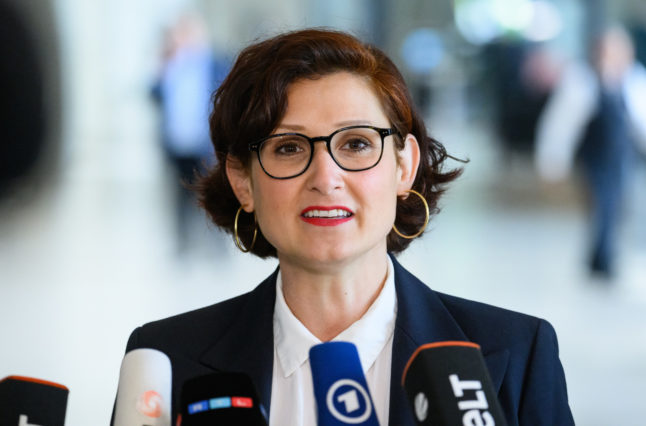Saturday marked the third anniversary of the deadly attack at a shisha bar and a cafe in Hanau, when gunman Tobias R. killed nine people with a migration background, his mother and himself in the Hessian city.
In an interview with the German Funke media group on the three-year anniversary of the killings, Federal Anti-discrimination Commissioner, Ferda Ataman, said that she thinks Germany still has a racism problem and criticised the way people affected by racism are treated in the country.
Relatives of victims in Hanau and many other people with experiences of racism are currently experiencing discrimination being played down as “woke” or as “identity politics” and “dismissed as the trivial interest of minorities,” Ataman said.
“At the same time, we observe that after events on New Year’s Eve, a general suspicion was expressed against people with a migration background.”
READ ALSO: How New Year’s Eve fireworks chaos sparked a racism debate in Germany
At the end of 2020, the federal cabinet decided on measures to be taken against right-wing extremism and racism, partly in response to the attack in Hanau. But, many of these – including removing the term “race” from Article 3 of the Basic Law – have not yet been implemented, Ataman said.
“It is all the more disappointing that the federal government has not implemented its announcements to date.”
Justice Minister Marco Buschmann (FDP) also said on Saturday that the attack in Hanau “remains a wound that does not heal”.
“We must not tolerate the fact that people have to fear becoming victims of violent acts in our country because of their history of origin,” Buschmann said.
The federal government’s victims’ commissioner, Pascal Kober (FDP), also commemorated the victims of the attack – saying they were “unforgotten”.
Hanau “is and remains a reminder for all of us that far too many people in our country have to experience racist violence in their everyday lives,” he continued. “As a society, we should do everything we can to fight racism, violence and discrimination every day.”



 Please whitelist us to continue reading.
Please whitelist us to continue reading.
Member comments